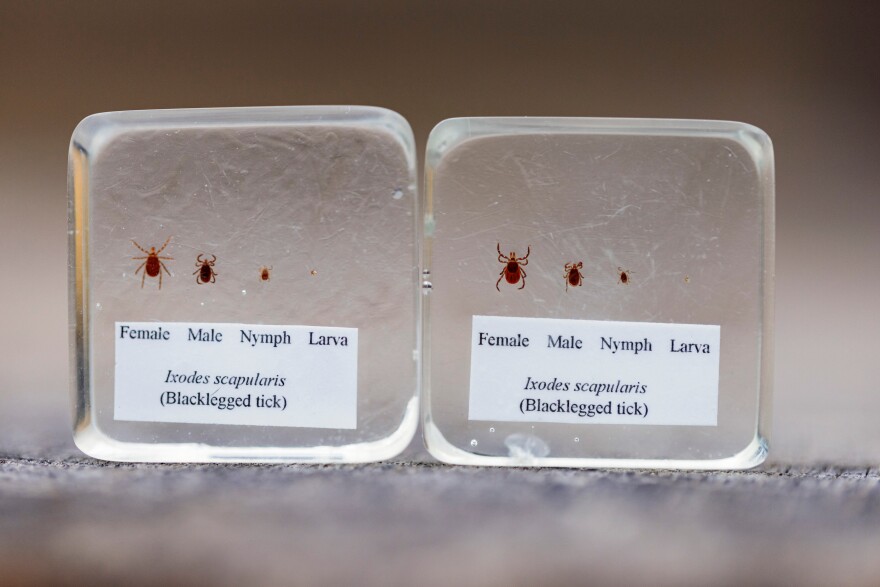BETHLEHEM, PA. — If you thought you were safe from blood-sucking bugs in winter, think again.
- Ticks are already active in the Lehigh Valley
- They respond to temperature, so the warm winter is to blame
- There are a number of measures you can take to prevent tick-borne disease, the number one of which is awareness
With people noticing ticks out and about, Erika Machtinger, Pennsylvania State University assistant professor of entomology, explained why they are.
“Ticks are actually active year round," Machtinger said. "So if it's above freezing, they can be active.
"But most tick activity that we see is going to be as it warms up in the spring, and then in the fall for the adults, and then for the immature as we see them in the middle of the summer.”
Even though it isn’t yet spring, the weather still is cause for concern as it comes to ticks, Machtinger said.
"And the warmer it gets, the more active they're going to be. And since we've had a very warm winter… they're going to be very, very active."Erika Machtinger, Pennsylvania State University assistant professor of entomology
“They respond to temperature. And the warmer it gets, the more active they're going to be. And since we've had a very warm winter… they're going to be very, very active.
“Once the temperature gets above a certain point, they're actively out there looking for a host. So it's not unusual that ticks are active at those temperatures. The temperatures are what's unusual.”
As for how to protect yourself from becoming a host, Machtinger gives these suggestions:
- Wear permethrin-treated clothing or treat your clothes with permethrin, which is available at most sporting goods stores and lasts for about five washes
- Wear long sleeves and long pants when venturing to tick-risky areas
- Put on repellant, such as DEET, picaridin or lemon eucalyptus oil
- Take a moment to check your skin and clothes for ticks as soon as you come indoors from being in in a tick-risky area
- Check your pets and working animals, and brush them outside before coming in. Also, have a plan with your veterinarian about how to treat your animals for ticks
- If you suspect a tick bite, save the tick if possible and go to your doctor or vet
As for whether early tick activity is the new normal, Machtinger said, “I think you'd have to ask a climate scientist."
"But what I can say is, if we continue to have warm temperatures in the winters, we're going to have more tick activity associated with those temperatures,” she said.


